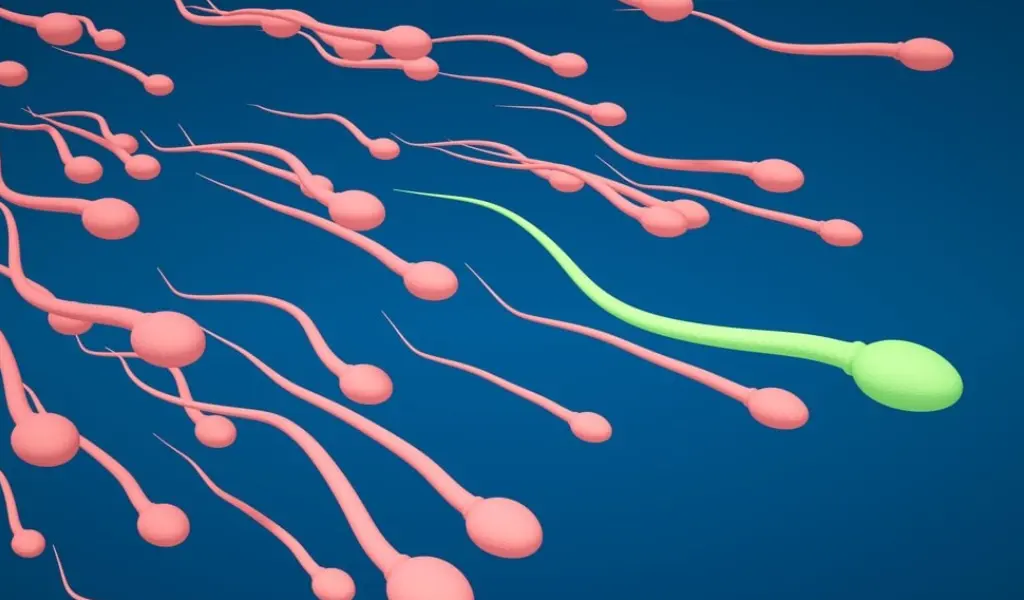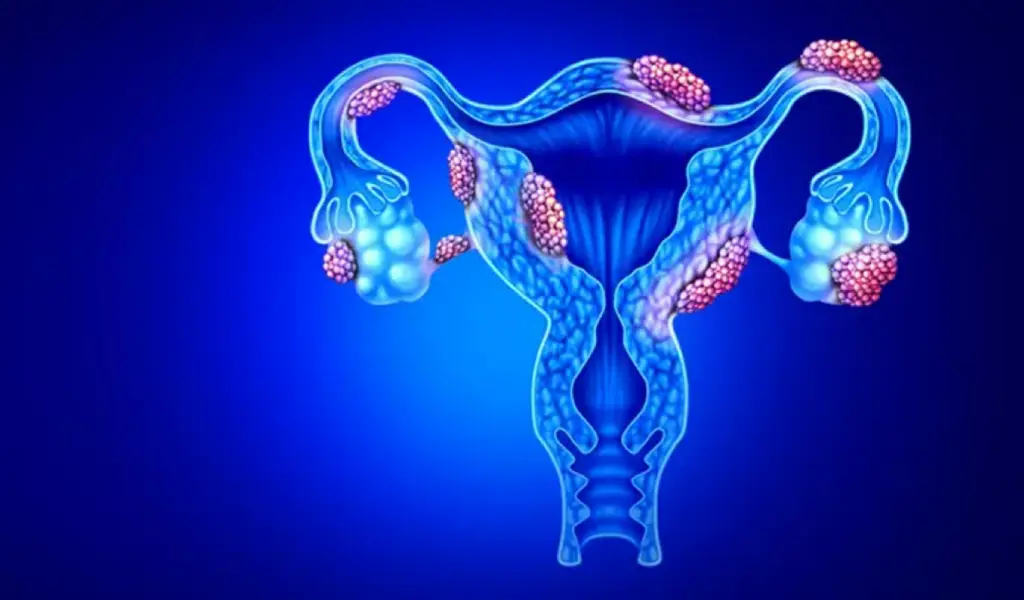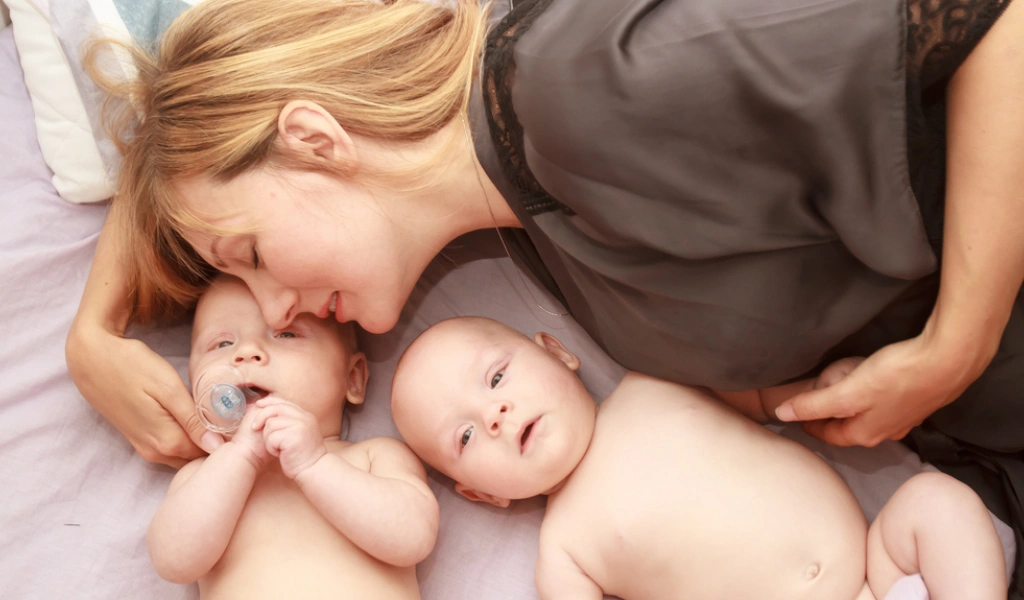Pregnancy failure can be attributed to a variety of factors, including insufficient rest and excessive use of lubricants during intimation with your partner. Couples facing difficulties in getting pregnant are familiar with the frustration that arises after multiple unsuccessful attempts to get pregnant. Many women begin to question why they are unable to get pregnant, as there can be various factors contributing to not getting pregnant.
By identifying the factors of why you are not getting pregnant, it may be possible to address the issue of getting pregnant and increase the chances of a successful pregnancy.
Therefore, in this article on ‘Top Reasons Why You Are Not Getting Pregnant‘, we discuss the various potential causes for your difficulty in getting pregnant and propose several efficient remedies and treatment alternatives for a successful pregnancy.
What is the time duration required for a woman to get pregnant?
If you are in good health and your reproductive system is functioning optimally, there is a 25% chance of getting pregnant in each menstrual cycle.

The American Pregnancy Association states that the majority of healthy couples who have regular unprotected intercourse will conceive within a year.1
Out of all the couples attempting to get pregnant, the data shows
- Within the initial month or first cycle, around 30 percent of women become pregnant.
- Approximately 60 percent of women get pregnant within three months or three cycles.
- Within six months or six cycles, approximately 80 percent of women get pregnant.
- About 85 percent of women conceive within a year or 12 cycles.
- Around 92 percent of women become pregnant in approximately four years or 48 cycles.
Top Reasons Why You Are Not Getting Pregnant
Although your menstrual cycles may be regular, various daily activities can influence your likelihood of getting pregnant. Let us explore the various causes of why you are not getting pregnant.
1. Excessive or insufficient sexual activity
Sex is likely the most fundamental desire for pleasure and procreation among humans. Furthermore, individuals can exhibit varying behaviors about this aspect.2
Engaging in excessive sexual activity: Some individuals believe that increasing sexual activity might improve the chances of getting pregnant. However, this belief is not always accurate. While having frequent sexual intercourse does not hurt a man’s sperm quality, it can have some potential health issues like tiredness, dizziness, weakened knees, and increased urination frequency.

If individuals excessively prioritize sexual activity solely for reproduction, it can lead to exhaustion, which is characterized by fatigue and reduced sexual energy. As a result, during the actual fertile period, one or both partners may lack interest in having sex. Ultimately, as a couple, this situation can lead to missed opportunities for getting pregnant.
Experiencing a lack of sexual activity: Restricting sexual activity or only engaging in intercourse during ovulation to preserve sperm may have unintended consequences on your ability to conceive. Prolonged abstinence from sex can potentially cause you to miss your fertile window, as accurately predicting ovulation is not always guaranteed.

Make an effort to engage in sexual intercourse regularly and monitor your ovulation dates closely. If you experience irregular menstrual cycles or struggle to track your fertile window accurately, consider using an ovulation kit. If the kit indicates that ovulation will occur within the next day or two, engage in sexual intercourse during this period. Remember not to solely focus on getting pregnant, as it may hinder your enjoyment of the process.
2. Experiencing Excessive Stress in day-to-day life
There is a significant correlation between stress and pregnancy issues. The negative repercussions of stress can manifest both in physical and mental health, ultimately impacting one’s chances of getting pregnant. Emotional disruptions, such as depression and anxiety, can also play a role in reducing fertility levels.

Therefore, it is crucial to maintain a tranquil and well-balanced state of mind when attempting to get pregnant. Stress can impair the proper functioning of the hypothalamus, responsible for controlling the pituitary gland. This gland is responsible for regulating the adrenal, thyroid, and ovarian functions and can even disrupt menstrual cycles, potentially leading to irregular periods.
It is advisable to allocate oneself a certain period to overcome the phase of stress, thereby enhancing one’s prospects of getting pregnant. To effectively manage stress, one could consider participating in fertility support groups, seeking guidance from a psychologist, engaging in fertility-oriented yoga, practicing meditation, and exercising regularly.3
3. The issue about men specifically
Very Low sperm count and bad motility due to various structural abnormalities are one of the main reasons for not getting pregnant. In most of the cases, this factor is the cause of fertility issues faced by couples.4

The initial action required is to consult a physician or a fertility expert to undergo examination and receive treatment. In certain cases, testosterone supplementation or Clomid might be beneficial in addressing issues related to low sperm count or motility.
Once all viable non-invasive alternatives have been explored, in-vitro fertilization (IVF) or intracytoplasmic sperm injection (ICSI) may serve as potential remedies. IVF entails the external fertilization of eggs and sperm cells, followed by the transfer of the resulting embryo into the vagina. On the other hand, ICSI involves the precise selection and direct injection of a single sperm into an egg.5
4. Immediately seeking the restroom following sexual activity
Numerous women promptly seek to use the bathroom for personal hygiene purposes following sexual intercourse. It is imperative to remain in a recumbent position for some time after engaging in intercourse, as this allows the sperm the opportunity to reach and fertilize the egg. By hastily rising and succumbing to gravity immediately after the act, the sperm is prone to descending, while subsequent cleansing expels the remaining ejaculate. Consequently, this can be identified as one of the inherent factors contributing to not getting pregnant.
To boost the likelihood of conception and pregnancy, it is advisable to prioritize the act of unwinding and reclining in bed for a period post-intercourse.6
5. Wearing too tights and undergarments for a prolonged time
Women utilize form-fitting undergarments to achieve a desired physique, as well as to enhance their physical appearance. However, it is important to consider the potential consequences on the proper functioning of reproductive organs. In males, this can result in a decrease in sperm production, while in females, it hinders air circulation and may give rise to discomfort or vaginal infections.
To prevent infections, it is advisable to wear appropriately fitting undergarments made of cotton. This will effectively minimize issues caused by perspiration and moisture, enabling proper ventilation and comfort in your intimate areas.7
6. Not Taking Enough Sleep
Sleep deprivation can place undue stress on the body and have negative impacts on the immune system’s functionalities, thereby elevating the vulnerability to infections and consequently, interfering with the reproductive cycle. This applies equally to both genders, as infections have the potential to escalate into fevers, while the elevated body heat associated with fevers can have detrimental effects on sperm. For women, a dearth of sleep may induce feelings of anxiety, thereby potentially disrupting the regularity of their menstrual cycle.

Ensure a sufficient amount of rest to maintain good health. Should you experience the problem of insomnia, it is recommended to seek advice from a medical professional.
7. Underweight or over-weight personality
The potential to conceive is influenced by both being excessively slim or overweight. Insufficient nourishment can hinder ovulation while being on the heavier side can impede pregnancy. Thus, maintaining an optimal body weight is crucial, as exceeding the ideal BMI significantly diminishes the probability of getting pregnant, even with regular ovulation.8

Maintaining a wholesome diet and lifestyle is imperative for promoting an ideal pregnancy. Additionally, it is advisable to partake in a moderate exercise routine. Seeking advice from a medical expert regarding the most appropriate fertility-enhancing nutrition is prudent. Furthermore, they can offer suggestions on the most efficacious fertility supplements.
8. Excessive utilization of lubricating substances
Research findings suggest that vaginal lubricants hurt sperm motility and impede the process of fertilization. This holds for lubricants obtained over the counter as well as those prepared at home.
The rationale behind this phenomenon lies in the fact that the pH level of pre-ovulation cervical mucus is conducive to the viability and mobility of sperm. However, lubricants possess an acidic pH, which is detrimental to sperm survival. Moreover, the thickness and moisture content of lubricants adversely impact sperm motility. Engaging in foreplay is paramount for facilitating a successful pregnancy.9
It is recommended to allocate an ample amount of time to establish a conducive mood for getting pregnant. If this approach proves ineffective, one may consider utilizing warm water or coconut oil as a lubricant, given their non-toxic nature and lack of interference with sperm motility. In cases where additional lubrication is necessary during attempts to conceive, opting for fertility-friendly lubricants such as Conceive Plus or Pre-Seed can be a favorable choice.10
9. Poor lifestyle Practices
The association between smoking and pregnancy is negatively correlated, thereby indicating that engaging in this detrimental behavior can diminish or influence the probability of getting pregnant. Furthermore, typical lifestyle elements like alcohol consumption, substance abuse, and caffeine intake have an impact on one’s fertility. These factors reduce sperm count and motility in men, while in females, they induce irregular ovulation.

It is advisable to relinquish these particular habits, particularly in the months leading up to your intended conception. Opt for more wholesome life choices instead. Additionally, refrain from consuming artificial sweeteners and minimize contact with substances containing chemicals.11
10. Environmental pollution
Environmental toxins and fertility are interconnected as these toxins have a detrimental impact on individuals of both genders. Being exposed to harmful pollutants including chemicals, pesticides, cigarette smoke, polychlorinated biphenyls, plastics, food packaging, as well as personal care products like soaps, shampoos, and cosmetics, can potentially compromise one’s overall well-being, particularly fertility. Research indicates that these toxins fundamentally diminish a couple’s reproductive capacity.
While it is impossible to completely evade contact with environmental toxins and chemicals, it is advisable to make an effort to minimize such encounters to the greatest extent feasible.12
- Discontinue the application of pesticides on your plants and lawn, and opt for organic alternatives instead.
- Choose personal care products that are crafted from organic and naturally derived ingredients.
- When engaging in tasks in areas with chemical exposure, it is imperative to wear proper protective equipment and consistently remain in well-ventilated surroundings.
All the aforementioned factors are influenced by lifestyle decisions or environmental elements that impact an individual’s fertility. Subsequently, let us examine certain medical factors contributing to infertility.
Medical Reasons For Not Getting Pregnant
In certain instances, the natural termination of the egg may occur, while in others, the couple may experience erectile dysfunction. It is advisable, however, to allow a year for potential conception. If outcomes remain unfruitful during this period, consulting a physician for examination and medical intervention is recommended.
According to a worldwide investigation conducted by the World Health Organization (WHO), the prevalence rate of infertility varies based on its chronicity or intermittency. Additionally, the WHO’s report on this research expounded that high-income countries exhibit a higher prevalence rate of infertility compared to low and middle-income countries. Nonetheless, the etiology of infertility varies between males and females.
The medical causes of not getting pregnant in women are:
11. Not having regular periods
Women with irregular menstrual cycles face challenges when it comes to pregnancy. The irregularity of their periods is a consequence of inconsistent ovulation, rendering it impossible to get pregnant without the presence of an egg. Consequently, the lower the frequency of ovulation, the diminished the likelihood of successful pregnancy.13
What measures can I take to conceive if my menstrual cycle is irregular?
A medical professional possesses the ability to identify the root cause of irregular menstruation and provide appropriate treatment. It is advisable to prioritize the consumption of nutritious food, achieve a desirable body weight, engage in moderate physical activity, and adhere to the doctor’s recommendations regarding fertility-enhancing supplements.
12. Endometriosis
Endometriosis is a persistent disorder affecting the reproductive system, characterized by the aberrant growth of endometrial cells beyond the confines of the uterus. This condition has the potential to impede fertilization by obstructing the fallopian tubes or hindering the transit of a fertilized egg toward the said tubes. Additionally, it may create an adverse environment for the viability of the egg.

As per the World Health Organization, endometriosis has a prevalence of approximately 10% among women in their reproductive years on a global scale. This condition has the potential to induce irregular and/or discomforting menstruation, intense discomfort during sexual penetration, agonizing bowel movements, frequent urination accompanied by a perception of bladder fullness throughout the menstrual cycle, or persistent pelvic pain.
What potential treatment options may be considered?
There exists a wide array of treatment choices available for endometriosis, which may or may not encompass surgical procedures to diagnose and determine the stage of the condition. Typically, laparoscopy is advised as the primary method to both diagnose and manage endometriosis concurrently. Inducing suppression of endometriosis can result in restored fertility, although it may not be consistently effective in all instances.
13. Difficulties with the process of ovulation
Approximately 40% of fertility complications in women arise from irregular ovulation, impeding the discharge of fully developed eggs from the ovaries. While some females may experience chronic anovulation, others may ovulate sporadically every few months. Irregularities in hormonal levels, substantial fluctuations in body weight, intensive physical activity, or intense psychological strain are potential underlying factors contributing to ovulatory disturbances.
What are the potential courses of action for medical intervention?
Your physician will probably advise you to adopt a low-carbohydrate dietary approach, engage in physical activity to enhance insulin sensitivity and suggest certain nutritional supplements or prescribed medications. Subsequently, they may prescribe agents to stimulate ovulation, including gonadotropins, Clomifene, medications to suppress prolactin production, or in vitro fertilization (IVF) procedures.
14. Polycystic Ovary Syndrome (PCOS)
Polycystic ovary syndrome (PCOS) is a multifaceted disorder resulting from hormonal imbalances that disrupt the process of ovulation. The ovaries develop small cysts that hinder the maturation and release of eggs from follicles. Additional indications of this condition encompass irregular periods, weight gain, excessive hair growth, and acne.
What are the potential options for treatment?
Laparoscopic surgery, a form of reproductive surgery, has the potential to assist in the restoration and unblocking of fallopian tubes. Alternatively, in-vitro fertilization (IVF) can also be utilized as a treatment option.
Marini, who is now a mother of three children, faced difficulties with consistently irregular menstrual periods. Additionally, her diagnosis was delayed, which had an impact on her efforts to become pregnant. When reflecting on her journey, she states, After 5 years, I finally received some answers.
The reason for my misdiagnosis for such a long time was simply because I did not fit the typical profile of someone with Polycystic Ovary Syndrome. I was not overweight and did not have excessive facial hair due to high levels of testosterone. I certainly do not believe I resemble a male. So, what was causing my symptoms?
I experienced irregularity, and acne (which I previously thought was inherited from my mother), and my ovaries resembled clusters of grapes at different times of the month. Nevertheless, with the help of hormone therapy, she was able to get pregnant without difficulty despite her condition.
15. Conditions affecting the fallopian tubes
Fallopian tube obstructions or injury hinder the eggs’ journey to the uterus and the sperm’s access to the egg, consequently impeding pregnancy. These circumstances may be a result of sexually transmitted infections, pelvic inflammation, sterilization surgeries, or endometriosis. Laparoscopic surgery has the potential to assist in the unblocking and restoration of the tubes, or IVF treatment can be pursued.
16. Egg criteria
As women approach their late 30s and early 40s, both the quality and quantity of their eggs deteriorate. When a woman is born, she has roughly one to two million eggs, but this number decreases to around 300,000 by the time she reaches puberty. Out of these, only about 300 eggs will mature and be released through ovulation.
Eventually, by the onset of menopause, the remaining number of eggs is minimal. Planning pregnancy during your fertile age is advisable due to the irreversible nature of egg loss. If you are overweight, it is recommended to focus on weight loss.
Additionally, quitting smoking and effectively managing any thyroid issues are crucial. To enhance egg quality, taking supplements such as fish oils, prenatal vitamins, probiotics, vitamin D, and Coenzyme Q10i can be beneficial. If the previously mentioned options are not successful, alternative solutions include using donated eggs or embryos, considering adoption, or exploring the possibility of surrogacy.
17. Insufficient levels of progesterone
Following ovulation, the corpus luteum, which is the remaining follicle from the egg, generates progesterone to facilitate the implantation of the embryo in the initial stages of pregnancy. Insufficient levels of progesterone during this period are referred to as Luteal Phase Defect (LPD), which can be a contributing factor to infertility. In the event of conception, the placenta and fetus will not develop properly, resulting in an unviable fetus or early miscarriage.14
Additionally, irregular luteal functioning can be attributed to other medical conditions such as prolactin or thyroid abnormalities. Your doctor might suggest seeing a reproductive endocrinologist. Potential treatments consist of progesterone supplements, progesterone injections, or suppositories to enhance the thickness of the uterine lining to facilitate embryo attachment.
18. Issues with the mucus found in the cervix
The texture of cervical mucus typically alters to become clear and stretchy to facilitate the movement of sperm through the mucus and into the female reproductive organs. However, if there are abnormalities in the cervical mucus, it may hinder the passage of sperm. These abnormalities can be caused by an infection in the mucus or the presence of antibodies that kill sperm. Women who suffer from chronic cervicitis or have a narrowed cervix due to previous surgery are more likely to experience these problems, which can result in unsuccessful pregnancies.
Identifying infections and providing appropriate treatment, along with utilizing assisted reproductive techniques like intrauterine insemination (IUI) and in-vitro fertilization (IVF), assist in resolving the problem of not getting pregnant.
The reasons behind male infertility are related to medical conditions such as:
19. Issues with sperm
Male fertility can be reduced by factors such as insufficient sperm motility, a low or absent sperm count, and irregularly shaped sperm. Fertility medications and supplements containing testosterone could potentially be the initial course of action to enhance the production of sperm.

The subsequent alternatives include Intrauterine Insemination (IUI) and Intracytoplasmic Sperm Injection (ICSI) as treatment options.
20. Obstructions in the tubes
Blockages in the epididymis and vas deferens may impede the proper transport of viable sperm. These obstructions can stem from various factors such as infections like gonorrhea or chlamydia, congenital abnormalities, or injuries. Moreover, the presence of varicoceles, which are enlarged veins in the scrotum, can hinder sperm motility. Medical professionals typically prefer the surgical rectification of tubal obstructions, as this procedure effectively addresses issues related to fertility.15
Apart from lifestyle decisions and medical causes, there exist additional variables that can impact pregnancy.
21. Infertility of unknown origin
Approximately 25% of cases of infertility are categorized as unexplained, meaning that despite extensive testing and assessments, the precise cause cannot be determined. Both partners undergo an array of tests without yielding any conclusive findings. While no underlying issues may exist, this situation ultimately leads to bewilderment.16
Physicians typically recommend the subsequent recommended course of action, namely to engage in regular sexual intercourse without solely concentrating on procreation. If this approach proves unsuccessful over an extended period, the option of undergoing in vitro fertilization (IVF) may be presented to you.
22. Infertility resulting from a combination of factors
In this scenario, both individuals in a relationship are found to have medical conditions that affect their ability to get pregnant, or when one of them encounters multiple challenges related to fertility. Treatment options are provided based on the underlying cause of infertility. At times, women may experience alterations in the intensity and duration of their menstrual cycle, which can consequently impact their fertility.
Can excessive menstrual bleeding be indicative of fertility?
Experiencing excessive menstrual bleeding does not necessarily signify enhanced ability of pregnancy rather, it may potentially indicate an underlying health concern. Sensations of fatigue and exhaustion may manifest as a result, as the excessive blood loss depletes vital bodily resources accumulated over time. Consequently, prompt consultation with a medical professional is imperative upon experiencing sudden and intense episodes of heavy menstrual bleeding.
Is it possible to get pregnant at any point during the menstrual cycle?
Conception is contingent upon ovulation, thereby invalidating the notion that pregnancy can occur at any time during the month. This implies that engaging in sexual activity during the pre-ovulation and ovulation period is crucial, as these are the most fertile moments, typically encompassing two to three days before ovulation and the actual day of ovulation. It is essential, however, to comprehend that the occurrence of fertile days does not necessarily indicate optimal functioning.
Does having regular menstrual cycles indicate fertility?
If an individual experiences regular menstrual cycles, their likelihood of getting pregnant is significantly increased. Nevertheless, fertility is a complex matter, as there can exist various factors that may hinder pregnancy despite possessing a substantial quantity of eggs. If you have been unsuccessful in achieving pregnancy after an extended period, you must seek the expertise of a fertility specialist or gynecologist to identify and eliminate potential factors contributing to this situation.
Additionally, it is worth noting that medical intervention is not always necessary for successful conception, as certain alterations to one’s lifestyle can serve as natural fertility remedies and enhance the chances of becoming pregnant.
What measures can be taken to enhance the odds of getting pregnant swiftly?
When you decide to start a family, you may desire to optimize your chances of getting pregnant rapidly. There exist methods to enhance the probability of achieving pregnancy promptly.
- Arrange an initial consultation or session for preconception evaluation or guidance.
- It is advised to refrain from the usage of contraceptive pills for a few months before attempting conception.
- Determine your precise ovulation period by employing an ovulation predictor kit.
- Engage in sexual intercourse at an opportune moment.
- Enhance sperm quality through dietary enhancements, consistent physical activity, minimizing exposure to chemicals, and incorporating supplements into one’s regimen.
- Consume a nourishing and well-balanced diet.

- Indulge in a state of relaxation and embrace an enjoyable experience while engaging in intimate relations.
Implementing these changes promptly will expedite your ability to conceive.16 Some couples may encounter difficulties in conceiving a child initially, while others may face challenges in conceiving a second child.
Factors Hindering Conception During Subsequent Attempts for Getting Pregnant
The fertility of an individual may decrease after their initial pregnancy, leading to challenges in getting pregnant a second time. Such a condition is referred to as secondary infertility. The following are several prevalent factors contributing to the inability to achieve pregnancy.

- There exists a correlation between an individual’s age and their fertility. Women who surpass the age of 35 will experience a decline in the number of eggs available, ultimately resulting in a diminished or absent egg supply.
- As males reach the age of 50, their reproductive capabilities and the quality of their sperm begin to decline.
- Alterations in the process of ovulation and menstrual cycles can occur as a consequence of hormonal irregularities, fluctuations in body weight, elevated stress levels, the intake of certain medications (such as steroids, antibiotics, and antihistamines), as well as the misuse of substances like drugs, tobacco, and alcohol.
- Adverse outcomes during your initial pregnancy or childbirth.
- Injury caused to the fallopian tubes resulting from abdominal surgical procedures, the presence of endometriosis, or sexually transmitted infections.
Key Takeaways of ‘Top Reasons Why You Are Not Getting Pregnant’
- As women reach the age of 35, their ability to conceive decreases, which can make it difficult to get pregnant.
- Unhealthy habits like smoking, excessive drinking, and a poor diet can potentially be the cause of not getting pregnant.
- Medical conditions such as polycystic ovary syndrome (PCOS), endometriosis, and thyroid disorders can have an impact on fertility.
- Issues with male fertility, such as a low sperm count or poor sperm quality, can greatly affect a couple’s ability to get pregnant.
- Increasing the probability of pregnancy can be achieved by timing sexual intercourse with ovulation.
- Promoting stress reduction activities and maintaining a healthy lifestyle can help improve fertility.

























